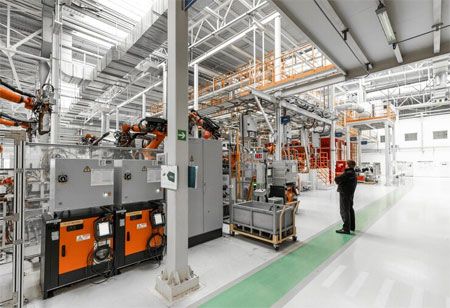
In the realm of modern manufacturing, the choice of materials for equipment and fittings plays a crucial role in determining operational efficiency, dur- ability, and overall performance.
High-nickel alloy fittings have emerged as indispensable components in manufacturing plants, offering myriad benefits that contribute to smoother operations and enhanced equipment longevity.
One of the most significant advantages of high-nickel alloy fittings is their exceptional corrosion resistance. Manufacturing environments often involve exposure to corrosive substances such as acids, alkalis, and other chemi- cals. High-nickel alloys, including renowned variants like Inconel, Monel, and Hastelloy, exhibit remarkable corrosion resistance, ensuring that fittings withstand harsh conditions without degradation.
This corrosion resistance not only extends the lifespan of equipment but also minimizes the need for frequent maintenance and replacement, thereby reducing downtime and operational costs. For specialized applications requiring even higher temperature and corrosion resistance, parts like the Inconel 600 pipe fittings offer a premium solution with superior properties suited for extreme environments.
Manufacturing processes frequently entail exposure to high temperatures, placing considerable stress on equipment and fittings. High-nickel alloys possess superior temperature tolerance, maintaining their structural integrity even in extreme heat.
This property is crucial for ensuring the reliability and longevity of fittings in industrial settings where thermal fluctuations are commonplace. By withstanding high temperatures without compromising performance, high-nickel alloy fittings contribute to the overall efficiency and safety of manufacturing operations.
In addition to their corrosion resistance and temperature tolerance, high-nickel alloy fittings are prized for their exceptional strength and toughness. These materials exhibit robust mechanical properties, enabling them to withstand heavy loads, vibrations, and impacts inherent in manufacturing environments.
Their high strength-to-weight ratio and resistance to deformation ensure that fittings maintain their structural integrity under challenging conditions, thereby enhancing reliability and reducing the risk of equipment failure.
Manufacturing plants often operate in diverse environments with varying chemical compositions, pressures, and temperatures. High-nickel alloy fittings offer compatibility with a wide range of operating conditions, making them highly versatile for different applications.
Whether it's handling corrosive chemicals, high-pressure systems, or extreme temperatures, these fittings provide reliable performance across various industrial settings. Their versatility allows manufacturers to streamline operations and optimize equipment performance without compromising on safety or reliability.
While high-nickel alloy fittings may involve a higher initial investment compared to conventional materials, their long-term benefits justify the cost. These fittings offer significant cost savings over their operational lifetime by minimizing maintenance requirements, reducing downtime, and extending equipment lifespan.
Moreover, their durability and reliability contribute to enhanced productivity and operational efficiency, further bolstering their cost-effectiveness in the long run.
Advancements in metallurgical engineering continue to drive innovation in high-nickel alloy fittings, allowing for customized solutions tailored to specific manufacturing needs. Manufacturers can leverage cutting-edge designs and materials to optimize performance, improve efficiency, and meet evolving industry requirements.
Whether it's developing specialized alloys for unique applications or designing custom fittings for specific operational challenges, the versatility and adaptability of high-nickel alloys facilitate continuous innovation in manufacturing processes.
High-nickel alloy fittings are vital in modern manufacturing plants, offering unparalleled corrosion resistance, temperature tolerance, strength, and versatility. These fittings contribute to operational efficiency, equipment reliability, and safety standards in industrial settings.
Manufacturers can unlock greater efficiency, durability, and long-term cost savings by investing in high-nickel alloy fittings, positioning themselves for success in an increasingly competitive manufacturing landscape.
We use cookies to ensure you get the best experience on our website. Read more...